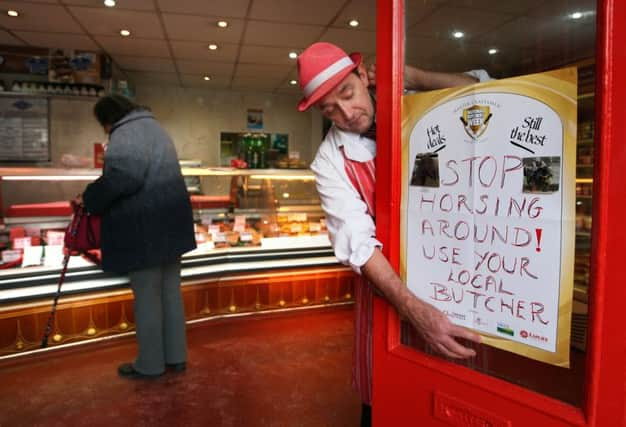Stephen Jardine: I'll try the vegetarian way in meat-free May


When Leah Mallet opened a Morrisons ready meal this week, she got a surprise. The 18-year-old had expected a spaghetti bolognaise supper for one. but inside the packaging was a sticker with an image of a distressed looking cow and the words: “My name was Chloe. I wanted to live. Your personal choice killed me.”
Quite naturally, this left Leah upset. “I felt really horrible. I’ve seen and understand people’s opinions on eating meat. But doing something aggressive like that is emotional blackmailing. I didn’t really feel like I wanted to eat that meal after that.” Which of course was exactly the point.
Advertisement
Hide AdAdvertisement
Hide AdIt’s estimated about 2 per cent of the UK population is now vegetarian. For the vast majority, it is a personal choice motivated by concerns about the planet, animal welfare or their own health. Most are happy to leave it at that but for a tiny minority, meat eaters are the enemy and need to be converted.
From our canine teeth to our short digestive systems, the human body is designed to eat meat because it is a good source of protein and nutrients. Processed meat has been linked to increased risk of cancer but if you stick to good quality unprocessed meat in limited quantities, there is no evidence it is bad for your health.
There are observational studies claiming vegetarians are at lower risk when it comes to certain diseases but they can be easily explained by the fact that they are more health conscious anyway, smoking less and taking more exercise.
So the evidence is inconclusive at best, but add in concerns about animal welfare and the impact intensive farming has on the planet and it is easy to understand why some people don’t eat meat.
That’s not me. Brought up in farming country, meat has always been on the table. As a student I turned down the chance to share a fabulous flat with a vegan because of the rules that would have governed my use of the fridge and cooking utensils. The only wobble came 20 years ago when I visited an abattoir. I left with a box of pork which remained unopened for a while until the lure of bacon led me back.
That said, red meat consumption is falling. Research shows 29 per cent of people in the UK have cut their intake. Within that group 58 per cent said they were doing it for health reasons with 20 per cent citing food safety concerns.
Horsegate played a big part in that. The vast case of food fraud alerted consumers to the fact that they might not be eating what it says on the packet. Behaviour changed, and meat sales suffered.
However what the scandal didn’t do was end our carnivore habit. Poultry now makes up half of meat sales in the UK but there is no suggestion we are hurtling towards becoming a nation of vegetarians. So what is standing in the way ?
Advertisement
Hide AdAdvertisement
Hide AdAmongst young people there has been a clear rise in the number shunning meat but with older people, especially men, nothing much has changed.
So is this down to just habit or something more complex involving our cold, wet northern climate and a natural physiological propensity to eating meat from an early age?
I’m going to find out. After half a century of eating meat, I will spend the next month living without it. My meat-free May is designed to test some of my preconceptions and to find out how it makes me feel. I’ll track progress in this column each week. Wish me luck…. and not too many lentils.